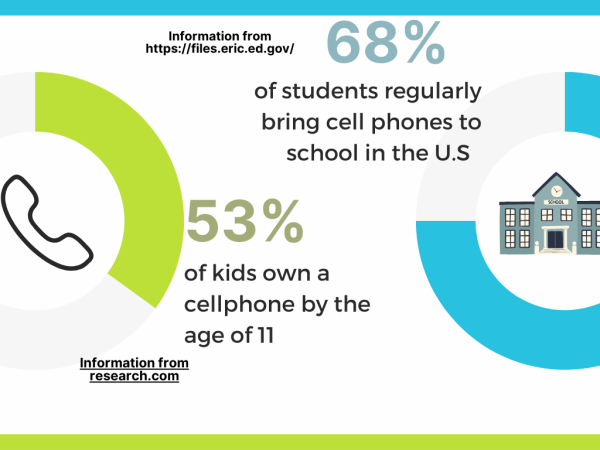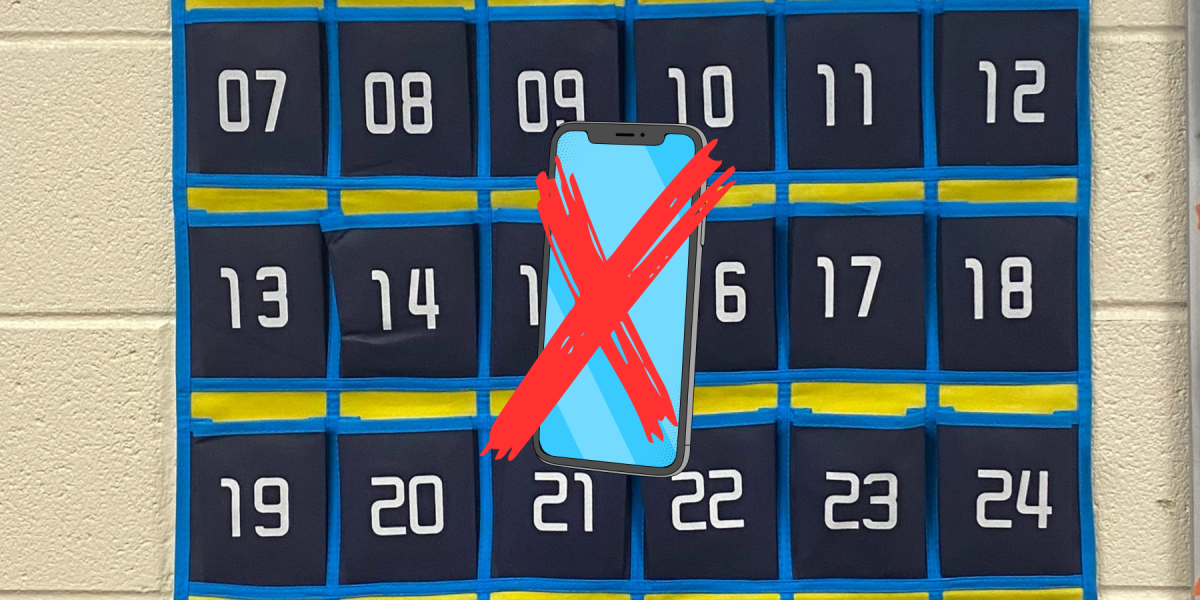This year, numerous states such as Ohio and Colorado have passed laws that ban students from bringing cell phones to class. Those who owned cell phones in the mid-1990s were perceived as drug dealers. That assumption quickly became debunked, but teachers still found reasons to believe that phones did not belong in classrooms. Teachers could terminate phone caddies or phone jails in classrooms if teachers and students can work together to ensure that all students offer their full attention.
Nevertheless, those who believe that phones become a way for students to cheat and become distracted from instructed learning times also believe that students take out their phones for purposes other than research and access to resources to take away both of those issues teachers resort to the use of phone caddies or phone jails.
“This is the first semester I’ve had where people can’t separate themselves from their phone and it’s more of a distraction than help. I used to be okay with it because it can help when you have to look up stuff and research stuff but now it’s just more of a distraction, but now we have access to laptops that can be the resource to go to the internet for research and separate from our phones a little bit,” AP US History teacher Tamara Rakenburg said.
The opposition, however, remains unaware that by allowing students to use their phones for music or phone breaks after certain times, they can use them to improve the quality of their work and attention span. The necessity for phone caddies or phone jails in classrooms could become resolved if teachers and students work together to accommodate students’ needs for their phones and ensure that all students offer their full attention.

Teachers believe that students should not keep phones in the classroom because they distract students during independent work time. They also believe that students pull out their phones to text their friends or even scroll through social media mindlessly. The fact that students look for tools to aid them in completing their work completely bypasses teachers’ minds.
The internet currently consists of numerous resources available to aid students in their academic work such as Quizlet, online textbooks, BrainPop, Khan Academy and several other resources. These resources help students understand questions that they might feel reluctant to ask in front of others and may also help students understand a concept that the teacher did not explain to their understanding. Although it may seem like technology defeats the purpose of a teacher, it does not; it stands as an extra resource for students on top of the information given by the teacher.
Phones in the classroom also contribute to student success by encouraging active participation in class. Websites such as Kahoot use competition and a point system to attract students into wanting to win. Additionally, teachers may assign projects that require students to create videos that present a topic using apps such as TikTok. In addition to the conventional paper and pen tasks, applying technology in the classroom could lead to other intriguing projects.
Actually keeping phones in the classroom becomes the first step for students to use their phones in an efficient and responsible manner. When kids use their phones as a resource, they also learn when to take out their phones. If the phones remain locked up, students feel obliged to put them away and never learn crucial abilities like researching a topic they may not understand or learn how to look for resources other than merely looking up the answer. Students now use Google to simply look up an answer because they were never taught how to correctly utilize their phones to assist them with their work. Teachers learning ways to teach students like incorporating phones by assigning students a task that involves scanning QR codes that may explain a concept.
New classroom mobile apps recently came to light that offer creative approaches to the use of phones in the classroom. Apps like Audioboo let students record their voices and share their recordings with others. For example, Audioboo can be used for peer editing, or students can record and share their opinions on the topic being taught to them. Students can study history more interestingly and enthusiastically by using engaging apps like Cagle Cartoons, which gathers a range of political cartoons in one place. Cagle Cartoons help history more enjoyable to learn. Evidently, several apps available, such as Audioboo and Cagle Cartoons, could potentially transform classrooms into phone-friendly zones.
Phones also serve as a convenient way to use textbooks as opposed to students needing to buy textbooks in classes where teachers require them like AP US History. With the phones, students do not need to haul around books that they may never look at again. Instead, using digital textbooks that students can access anywhere and anytime through their phones becomes an efficient way to work textbooks into any lesson plan. There consists various ways that educators can work phones into examples as opposed to using phone jails or caddies; It only requires finding those met.














